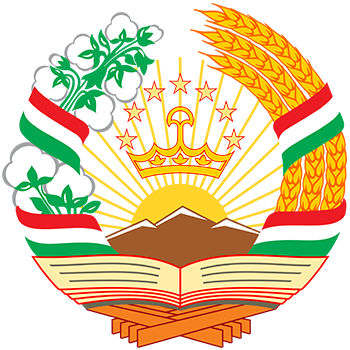A meeting of the Government of the Republic of Tajikistan was held under the chairmanship of the Founder of Peace and National Unity — Leader of the Nation, President of the Republic of Tajikistan, Head of the Government of the country Emomali Rahmon.
The report of the First Deputy Minister of Industry and New Technologies of the Republic of Tajikistan on the implementation of the decision of the Government of the Republic of Tajikistan «On the Program for the Development of Light Industry in the Republic of Tajikistan for the period up to 2022» was first heard at the meeting of the Government of the country. It was emphasized that this program is implemented within the framework of the fourth strategic goal — rapid industrialization of the country, and is important for ensuring the development of the country’s economy due to the development of light industry.
The Program for the Development of Light Industry in the Republic of Tajikistan for the period up to 2022 has been developed based on the provisions of the Law of the Republic of Tajikistan «On state perspectives, concepts, strategies and programs of socio-economic development of the Republic of Tajikistan», «Strategy for the development of industry in the Republic of Tajikistan for the period up to 2030», «Medium-term development program of the Republic of Tajikistan for 2016-2020» and the decision of the Government of the Republic of Tajikistan dated January 23, 2018, No. 34 «On the results of socio-economic development of the Republic of Tajikistan in 2017 and tasks for 2018».
It was noted that the volume of production of light industry products during the implementation of the Program had a tendency to increase year by year, from 2.7 billion somoni in 2018 to 4.1 billion somoni in 2021, which is 1.5 times the growth rate compared to 2018.
In particular, during the period of implementation of the industry program, i.e. 2018-2021 and 8 months of 2022, the forecast index of cotton thread was completed at 103.5%, sewing products 115.3%, socks and stockings 209.5%, knitted products 141.4%, shoes 101.1%, furniture 216.8%, and carpet 167.1%.
In order to fulfill the instructions and orders of the President of the Republic of Tajikistan, the Leader of the Nation Emomali Rahmon and the Government of the Republic of Tajikistan, measures have been taken to provide students of general secondary education institutions with school uniforms of domestic production, and the volume of production of school uniforms reached from 1 million 128 thousand pieces in 2018 to 2 million 670 thousand units in 2021, which is a 2.4 times increase. In eight months of 2022, the volume of production of school uniforms was increased to 3 million 18 thousand pieces, which increased the growth rate by 20.0% compared to the same period last year.
During the implementation of this program, 245 enterprises and workshops with 3872 jobs were commissioned in the republic. In particular, 38 enterprises and workshops with 730 jobs in 2018, 50 enterprises and workshops with 820 jobs in 2019, 32 enterprises and workshops with 534 jobs in 2020, 87 enterprises and workshops with 1326 jobs in 2021, and 38 enterprises and workshops with 462 jobs were put into use during the months of January-August 2022. The activities of the above-mentioned enterprises and factories are focused on the processing of cotton, cotton fiber, leather, production of blanket cotton, sewing products, socks, polypropylene bags, shoes and furniture.
The implementation of the decision of the Government of the Republic of Tajikistan dated June 3, 2014, No. 375 «On the development of hand-woven carpets and other folk crafts in the Republic of Tajikistan» provided an opportunity to establish educational-production centers in the territory of cities and districts of the country, and to strengthen the process of learning and developing folk crafts.
Currently, 8 enterprises are organized as legal entities and in 38 cities and districts training and production centers for handicraft products are organized and operate regularly. Crafts enterprises and centers produce satin and silk fabric, quilts, decorative bed sheets, embroidered pillows, lace, needlework, shirts, small jackets and other handicraft products and are registered in statistical reports.
Draft Law of the Republic of Tajikistan «On Amendments to the Code of Administrative Offenses of the Republic of Tajikistan», Law of the Republic of Tajikistan «On Amendments to the Tax Code of the Republic of Tajikistan», Law of the Republic of Tajikistan «On Amendments to the Law of the Republic of Tajikistan «On insurance of deposits of individuals», Law of the Republic of Tajikistan «On Amendments to the Law of the Republic of Tajikistan «On state registration of legal entities and individual entrepreneurs», Law of the Republic of Tajikistan «On Amendments to the Law of the Republic of Tajikistan «On Protection of Competition», Law of the Republic of Tajikistan «On Amendments to the Law of the Republic of Tajikistan «On Protection of Consumer Rights» and Law of the Republic of Tajikistan «On Amendments to the Law of the Republic of Tajikistan «On Trade and Household Services» were submitted after discussion for consideration to the Majlisi namoyandagon Majlisi Oli of the Republic of Tajikistan.
The members of the Government of the country also discussed the Strategy for the Development of Social Protection of the Population of the Republic of Tajikistan for the period up to 2040, the Program of Statistical Work for 2023, the Program for the Development of Pasture in the Republic of Tajikistan for 2023-2027, the Program for the Development of the Cinema of the Republic of Tajikistan for 2023-2027 and the Regulations of International Scholarships Program of the President of the Republic of Tajikistan «Durakhshandagon».
The President of the Republic of Tajikistan, Leader of the Nation, Head of the Government of the country, Emomali Rahmon, while reviewing the issues on the agenda of the Government meeting, gave specific instructions and orders to the heads of relevant ministries and agencies of the country to ensure their timely implementation.
Other instructions and orders were given regarding the required level of preparations for winter period of 2022-2023, provision of population and facilities of economic and social purpose with electricity and heat, prevention of power loss and fire situations, expansion of autumn planting, stock of food products and fuel, and good maintenance of road and transport facilities.

 Русский
Русский 3 764
3 764 